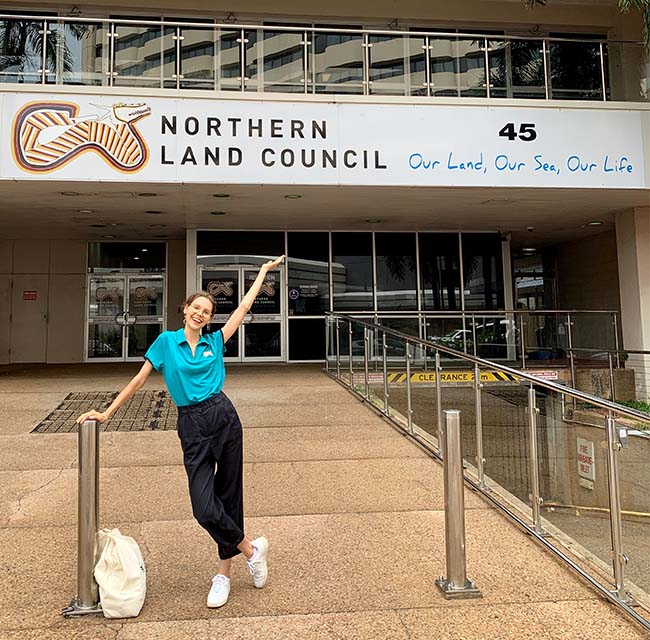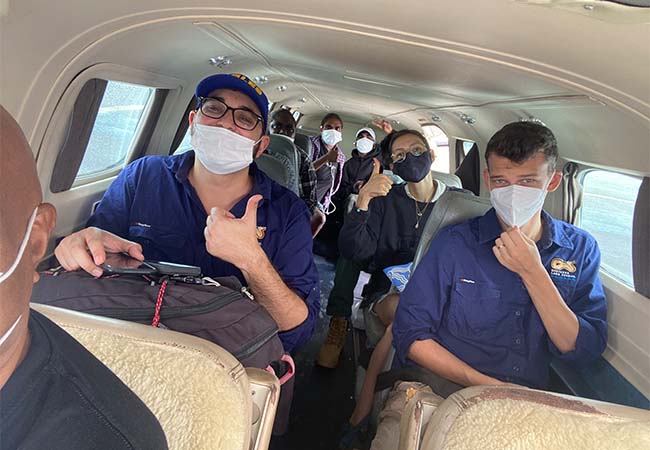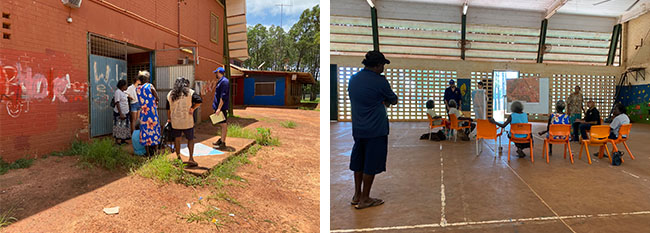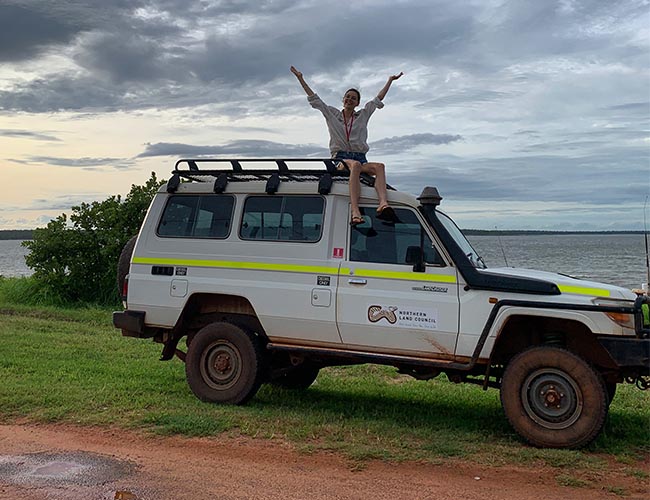Internships in the Indigenous sector: Three reasons to apply

Anna Kretowicz shares her experience taking a law internship with Aurora
When you think ‘law internship’, you might instinctively think of big cities, glass high-rises, corporate wear and corporate vibes. Aurora internships are also law internships, but they certainly break that mould.
There is definitely value in the former and it’s a privilege to do a clerkship, but having done the rounds, I wouldn’t underestimate experiences outside that box as well!
The Aurora Internship Program places a spotlight on Indigenous and Indigenous-sector organisations in particular – providing a dual benefit to those Host organisations and the young professionals (like us) who spend time interning there. It’s an excellent opportunity for law students because several of the Host organisations that connect with the Aurora Project operate in the Indigenous land rights and native title space, in addition to justice agencies, legal services and policy organisations.

Overall, my time at the Northern Land Council (NLC) in Darwin was slightly unconventional, challenging and refreshing – and I would recommend it to anyone for three key reasons.
1. You actually get to ‘do’ law
The benefit of working at Indigenous and Indigenous-sector organisations is that they’re smaller. This means, as an intern, you get a degree of autonomy and responsibility that can otherwise be hard to find.
While some tasks can be more administrative or smaller and are passed on to you because the lawyers are very busy, it doesn’t mean they are any less valuable.
Being largely native title and land rights work, what you learn is eye-opening and something you wouldn’t usually see at city-based law firms. So even if you’re helping draft a lease or write a letter of demand, it’s in a vastly different context – there’s never really a dull moment.
2. Workplace ‘culture’ has a completely different meaning
‘Workplace culture’ can sound like a tired refrain by the time you’ve reached the end of your law degree, although you probably still don’t get what it means. Personally, I don’t think culture in a workplace can be described. It’s more of a feeling, and the NLC was the perfect example of a collaborative, intellectually stimulating but stress-free environment.
As a small, not-for-profit office, it was a place where everyone took their work seriously, but nobody took themselves too seriously. Unlike big-city offices and traditional nine-to-fives – which can feel overwhelming when you’re new to the profession – the NLC had a close-knit, more relaxed environment that is more common to small offices.

During my internship, I was lucky enough to go out to the remote community of Maningrida in West Arnhem Land for a consult. A small team from the NLC comprising a lawyer, legal officer, anthropologist and I flew out and met with the Traditional Owners of that land, and other affected communities, to discuss various land use proposals and seek their consent.
Physically meeting with communities in this way reflects the different legal approach that is required when working with Indigenous communities and their land. This approach is in stark contrast to how you’d work with city-based law firms, where your clients are often large corporations and your instructions come through emails, phone calls or meetings.

Adapting to these differences in this context was the greatest culture shock I’ve ever experienced. I got to observe traditional Aboriginal decision-making processes in action (at least, in respect of one clan group) as we discussed the proposals with the community. I was able to see what life is like in a remote community.
I valued my time with NLC greatly; however, I do not wish to glamourise my experience. Remote communities are far from well-resourced; many people live in poverty. Even though it was a very short trip and I still have much to learn in this space, my time here allowed me to get a sense of why access to justice, especially for Indigenous Australians, is important.
3. Work hard, play hard
Of course, the internship was mostly about the work, but it was also a great opportunity for some relaxation time in a new city – for which Darwin was spectacular. I had plenty of opportunities after work and on the weekends to spend time with some new friends and my housemate.
Fun fact: laksa is actually a huge thing in Darwin. You simply must go to Parap Markets on a Saturday for one, although there are hot debates about where to buy the best

There’s certainly a grain of truth to the proverb that time flies when you’re having fun because before I knew it, my four-week stint was over and I didn’t feel ready to leave. However, I’ve made friends that I’ve promised to come back and visit. I certainly wouldn’t rule out returning to work in native title and land rights one day.
It’s always worth applying for the Aurora Internship Program. The worst that can happen is you get told no, and the best is that it’s one of the highlights of your undergraduate degree!
How to apply
Visit Aurora to learn more and apply online.
